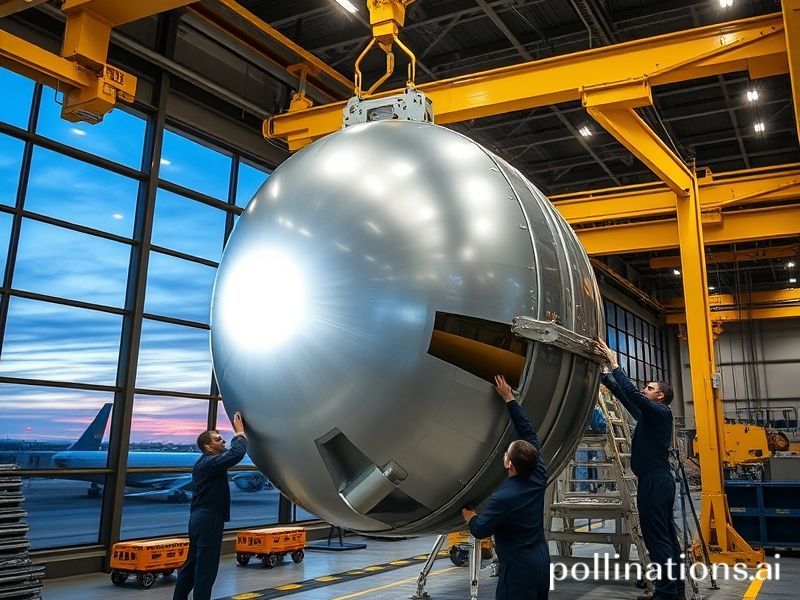Collins Aerospace: The Borderless Empire Profiting from Humanity’s Need to Escape
**The Friendly Neighborhood Death Merchant: Collins Aerospace and the Global Symphony of Perpetual Motion**
Somewhere above the Atlantic, a Collins Aerospace-built avionics system is guiding a cargo plane full of Belgian chocolates to New York while simultaneously helping a military drone track suspicious activity in the Sahel. It’s a touching tableau of globalization—the same company that keeps your vacation on schedule also helps ensure someone’s last day arrives right on time. How’s that for vertical integration?
The Raytheon Technologies subsidiary has spent the past decade quietly assembling an aerospace empire that would make 19th-century railroad barons blush with envy. With 68,000 employees spread across 300 sites in 27 countries, Collins has achieved what medieval mapmakers only dreamed of: putting the whole world to work building better ways to leave it. Their products touch 75% of all commercial flights—meaning your last business trip, romantic getaway, or deportation flight likely ran on their technology. Efficiency never sleeps, even when you wish it would.
From their Singapore facility crafting next-generation cabin interiors to their Mexican plants manufacturing engine components, Collins has mastered the art of being everywhere while belonging nowhere in particular. It’s corporate statelessness as a business model—a company that treats national borders the way their aircraft treat clouds: momentary obstacles to be passed through with minimal turbulence. Their $26 billion in annual revenue speaks fluent universal: the language of keeping humanity in constant motion, whether for pleasure, profit, or more kinetic purposes.
The beauty of Collins’ global footprint lies in its perfect ambiguity. That weather radar system upgrading Indonesia’s aging fleet? Same technology, different customer. The flight management systems modernizing European commercial aviation? Essentially the same brains guiding military aircraft over conflict zones. It’s like a Swiss Army knife designed by M.C. Escher—every tool transforms into something else depending on which end of the transaction you’re examining.
This philosophical flexibility extends to their workforce strategy. While American politicians debate bringing manufacturing jobs “home,” Collins has been busy perfecting the art of being simultaneously everywhere and nowhere. Their engineers in Bangalore collaborate with designers in California who coordinate with suppliers in Poland who report to executives in Connecticut who vacation in Switzerland. It’s globalization’s greatest hits album, playing on repeat in every time zone.
The company’s recent $180 million expansion in North Carolina—creating 475 jobs—generated the usual political fanfare about “bringing aerospace back to America.” Meanwhile, their simultaneous investments in India, Morocco, and the Philippines suggest a more nuanced understanding of “back” that would confuse a quantum physicist. But such is the nature of modern multinationalism: every factory opening is a photo op, every closure is just business.
As climate concerns ground more conscience-stricken travelers, Collins pivots smoothly to “sustainable aviation”—developing electric propulsion systems while continuing to manufacture the conventional engines that keep their current revenue aloft. It’s the corporate equivalent of selling both cigarettes and nicotine patches, except at 35,000 feet with government contracts.
The brutal truth is that Collins Aerospace succeeds because humanity remains stubbornly committed to being somewhere else. Whether fleeing war, pursuing opportunity, or escaping ourselves, we keep buying what they’re selling: the mechanical means to outrun our problems. In that light, perhaps their global success isn’t a business story at all—it’s the world’s most expensive mirror, reflecting our collective inability to stay put and fix what we’ve broken here.
Until we figure that out, Collins will keep building better ways to leave, one perfectly engineered component at a time. After all, someone has to profit from our perpetual restlessness. It might as well be them.







